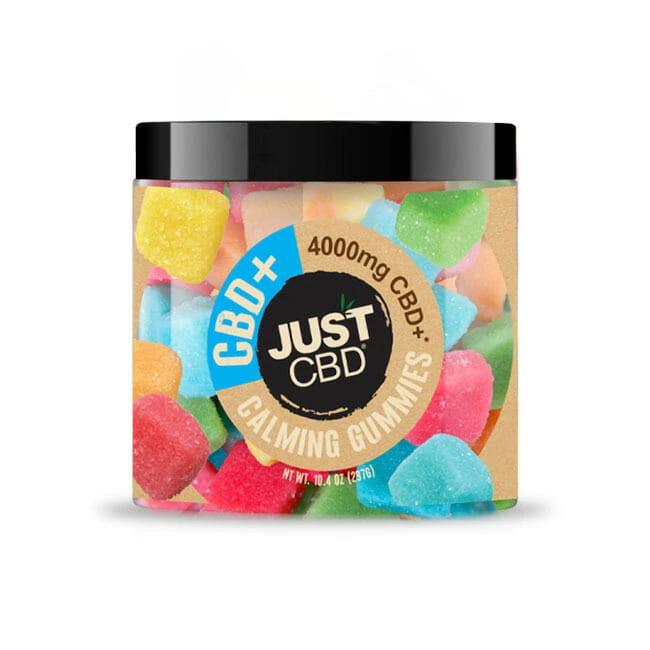The Science Behind CBD and its Effects on the Nervous System
Cannabidiol, or CBD, has gained significant attention for its potential therapeutic benefits, particularly in managing stress and anxiety. Derived from the cannabis plant, CBD interacts with the body’s endocannabinoid system (ECS), a complex network of receptors and neurotransmitters that plays a crucial role in regulating mood, sleep, and other physiological processes.
CBD’s Interaction with the Endocannabinoid System
The ECS is composed of endocannabinoids, naturally occurring compounds produced by the body, and cannabinoid receptors found throughout the nervous system. CBD, unlike its counterpart THC, does not directly activate these receptors. Instead, it modulates their activity by interacting with enzymes involved in the production and breakdown of endocannabinoids. This modulation can influence various neurotransmitters involved in regulating mood and anxiety, such as serotonin and GABA.
Emerging research suggests that CBD may help reduce stress and anxiety symptoms by promoting a sense of calm and relaxation. Studies have shown that CBD can decrease levels of cortisol, the hormone associated with stress, and may also help regulate heart rate and blood pressure, further contributing to its calming effects.
Neurotransmitter Modulation and its Impact on Stress Response

CBD’s potential benefits for stress and anxiety stem from its interaction with the endocannabinoid system (ECS). The ECS is a complex network of receptors and neurotransmitters that regulate various physiological functions, including mood. While CBD doesn’t directly activate cannabinoid receptors, it influences their activity by affecting enzymes responsible for producing and breaking down endocannabinoids.
This modulation impacts neurotransmitters like serotonin and GABA, which play key roles in regulating mood and anxiety. Serotonin is often referred to as the “feel-good” hormone, and GABA has calming effects on the brain. By influencing these neurotransmitters, CBD may promote a sense of calm and relaxation, potentially alleviating stress and anxiety symptoms.
Research also indicates that CBD can lower cortisol levels, the primary hormone associated with stress. Additionally, studies have shown CBD may help regulate heart rate and blood pressure, further contributing to its calming effects.
Preclinical Studies: Evidence from Animal Models
Preclinical studies using animal models provide valuable insights into CBD’s potential effects on the nervous system and its possible mechanisms of action in managing stress and anxiety.
These studies have demonstrated that CBD can reduce anxiety-like behaviors in rodents exposed to stressful stimuli, such as open field tests or elevated plus mazes. Researchers have observed that CBD administration can decrease anxiety-related responses, including reduced exploration of open areas and increased time spent in enclosed spaces.
Furthermore, studies have shown that CBD can modulate the activity of brain regions associated with emotional processing, such as the amygdala and hippocampus. The amygdala plays a crucial role in fear and anxiety responses, while the hippocampus is involved in learning and memory.
By influencing these areas, CBD may contribute to its anxiolytic effects by reducing neuronal excitability and promoting a sense of calmness.
Clinical Research on CBD for Anxiety and Stress
The potential benefits of cannabidiol (CBD) for managing stress and anxiety have garnered significant attention in recent years. As a non-intoxicating compound derived from the cannabis plant, CBD interacts with the body’s endocannabinoid system (ECS), which plays a vital role in regulating mood, sleep, and other physiological processes.
Human Studies on CBD and Generalized Anxiety Disorder
Human studies on CBD and generalized anxiety disorder (GAD) are still relatively limited, but emerging evidence suggests potential benefits. A small 2019 study published in the journal *JAMA Psychiatry* found that a single oral dose of CBD significantly reduced anxiety symptoms in participants with GAD compared to a placebo.
Another study published in *Neuropsychopharmacology* in 2021 investigated the effects of daily CBD treatment for six weeks. Researchers reported significant reductions in anxiety scores and improvements in quality of life in individuals diagnosed with GAD.
It’s important to note that these studies are relatively small and more research is needed to confirm these findings and establish optimal dosages and long-term effects.
CBD’s Effectiveness in Treating Social Anxiety
CBD has shown promise as a potential treatment for social anxiety. Studies suggest that it may reduce the physical symptoms associated with social anxiety, such as increased heart rate and blood pressure. CBD’s ability to interact with the endocannabinoid system, which plays a role in regulating mood and fear responses, may contribute to its anxiolytic effects.

While research on CBD for social anxiety is still ongoing, preliminary findings suggest that it could be a viable option for managing symptoms.
Research on CBD for Other Anxiety-Related Conditions
Cannabidiol (CBD), a non-intoxicating compound derived from the cannabis plant, has emerged as a potential therapeutic agent for anxiety and stress. CBD interacts with the body’s endocannabinoid system (ECS), a complex network of receptors and neurotransmitters involved in regulating mood, sleep, and other physiological functions.
Emerging research suggests that CBD may exert its anxiolytic effects through several mechanisms. It is believed to modulate the activity of neurotransmitters such as serotonin and GABA, which play crucial roles in mood regulation. Serotonin, often referred to as the “feel-good” hormone, contributes to feelings of well-being, while GABA has calming effects on the brain.
Furthermore, CBD has been shown to decrease cortisol levels, a hormone associated with stress. Studies have also indicated that CBD may help regulate heart rate and blood pressure, contributing to its overall calming effects.
Research involving animal models has provided valuable insights into CBD’s potential for managing anxiety. Preclinical studies demonstrate that CBD can reduce anxiety-like behaviors in rodents exposed to stressful stimuli. Researchers have observed that CBD administration decreases anxiety-related responses, including reduced exploration of open areas and increased time spent in enclosed spaces.
Human studies on CBD’s effectiveness for generalized anxiety disorder (GAD) are still limited but promising. A 2019 study published in *JAMA Psychiatry* found that a single oral dose of CBD significantly reduced anxiety symptoms in participants with GAD compared to a placebo. Another study, published in *Neuropsychopharmacology* in 2021, reported significant reductions in anxiety scores and improvements in quality of life in individuals with GAD following daily CBD treatment for six weeks.
While research on CBD’s applications for other anxiety-related conditions, such as social anxiety disorder, is ongoing, preliminary findings suggest potential benefits. Studies indicate that CBD may help alleviate physical symptoms associated with social anxiety, such as increased heart rate and blood pressure. This suggests that CBD could be a valuable tool in managing the various facets of anxiety disorders.
Factors Influencing the Effectiveness of CBD Gummies
The effectiveness of CBD gummies for treating stress and anxiety is influenced by several factors. These include the individual’s specific physiology, the dosage and potency of the CBD product, the frequency of use, and the presence of other substances or medications being consumed.
Dosage and Potency of CBD in Gummies
The concentration of CBD in each gummy plays a crucial role in determining its effectiveness. Gummies with higher concentrations of CBD are more likely to produce noticeable effects.
It’s important to start with a low dose and gradually increase it until the desired effect is achieved, as individual responses to CBD can vary widely.
The rate at which CBD is absorbed into the bloodstream also influences its effectiveness. Some gummies are formulated with ingredients that enhance absorption, allowing for faster and more efficient delivery of CBD to the body.
Consistency in usage is essential for experiencing optimal benefits from CBD gummies. Regular consumption allows the body to build up a tolerance to CBD and experience sustained effects over time.
Individual Response to CBD
CBD’s effectiveness for treating stress and anxiety can vary greatly depending on several factors. Individual responses to CBD are influenced by many unique physiological differences.
- Dosage: The concentration of CBD in each gummy matters. Higher concentrations are more likely to produce noticeable effects.
- Frequency of Use: Regular consumption allows the body to build up a tolerance and experience sustained benefits.
- Metabolic Differences: Each person metabolizes substances differently, impacting how quickly CBD is processed and absorbed.
- Body Weight:**
- Tolerance: Regular CBD users may develop a tolerance, requiring higher doses for continued effectiveness.
Individuals with higher body weight may require larger doses of CBD to achieve the desired effects.
Quality and Source of CBD Gummies
The quality and source of CBD gummies significantly influence their effectiveness.
It is crucial to choose products from reputable manufacturers that prioritize quality control and transparency.
Look for third-party lab testing results, which confirm the potency and purity of the CBD content. Reputable brands provide these test results on their websites.
The source of the hemp used to extract CBD also matters.
Hemp grown organically without the use of pesticides or herbicides is generally considered preferable, as it minimizes the risk of contaminants in the final product.
Other Medications or Substances Used Concurrently
The effectiveness of CBD gummies for treating stress and anxiety can vary depending on several factors. Individual responses to CBD are influenced by unique physiological differences. Dosage, frequency of use, metabolic rate, body weight, and tolerance all play a role.
Additionally, the quality and source of the CBD gummies are crucial. Opting for products from reputable manufacturers with third-party lab testing results ensures potency and purity. Choosing organic hemp as the source minimizes the risk of contaminants.
The presence of other substances or medications concurrently used can also impact CBD’s effectiveness. Some substances may interact with CBD, altering its effects or potentially causing adverse reactions. It is essential to consult with a healthcare professional before using CBD gummies, especially if you are taking any medications or have underlying health conditions.
Potential Side Effects and Risks of CBD Gummies
While CBD gummies offer a potential avenue for managing stress and anxiety, it’s important to be aware of potential side effects and risks associated with their use.
Like any substance, CBD can cause adverse reactions in some individuals. Common side effects may include changes in appetite, diarrhea, fatigue, or drowsiness.
In rare cases, more serious side effects such as liver damage have been reported.
Common Side Effects of CBD Consumption
While generally well-tolerated, CBD gummies can cause side effects in some individuals. Common side effects include changes in appetite, diarrhea, fatigue, and drowsiness. In rarer instances, more serious side effects like liver damage have been reported.
It’s crucial to start with a low dose and gradually increase it as needed, observing any reactions your body may have. If you experience any adverse effects, discontinue use and consult with a healthcare professional.
Drug Interactions with CBD Gummies
Potential side effects of CBD gummies can vary from person to person. Some common side effects include changes in appetite, diarrhea, fatigue, and drowsiness. In rarer cases, more serious side effects like liver damage have been reported. It’s important to start with a low dose and gradually increase it as needed, observing any reactions your body may have. If you experience any adverse effects, discontinue use and consult with a healthcare professional.
CBD can interact with certain medications, so it is essential to consult with your doctor or pharmacist about potential drug interactions before using CBD gummies, especially if you are taking blood thinners, antidepressants, or immunosuppressants.
Long-Term Use and Potential Health Concerns
While generally well-tolerated, CBD gummies can cause side effects in some individuals. Common side effects include changes in appetite, diarrhea, fatigue, and drowsiness. In rarer instances, more serious side effects like liver damage have been reported.
It’s crucial to start with a low dose and gradually increase it as needed, observing any reactions your body may have. If you experience any adverse effects, discontinue use and consult with a healthcare professional.
Potential side effects of CBD gummies can vary from person to person. Some common side effects include changes in appetite, diarrhea, fatigue, and drowsiness. In rarer cases, more serious side effects like liver damage have been reported. It’s important to start with a low dose and gradually increase it as needed, observing any reactions your body may have. If you experience any adverse effects, discontinue use and consult with a healthcare professional.
CBD can interact with certain medications, so it is essential to consult with your doctor or pharmacist about potential drug interactions before using CBD gummies, especially if you are taking blood thinners, antidepressants, or immunosuppressants.
Long-term use of CBD gummies and their potential health concerns are still under investigation. More research is needed to fully understand the long-term effects of regular CBD consumption.
Some potential risks associated with long-term CBD use include:
- Potential for Drug Interactions: CBD can interact with certain medications, potentially altering their effectiveness or increasing the risk of side effects.
- Liver Toxicity: While rare, there have been reports of liver damage associated with high doses or prolonged use of CBD.
- Impact on Blood Clotting: CBD may interfere with blood clotting mechanisms, increasing the risk of bleeding in individuals taking blood thinners.
Legal Considerations and Regulations Surrounding CBD Gummies
The legal status and regulations surrounding CBD gummies vary widely depending on location. In some countries, CBD derived from hemp plants with less than 0.3% THC is legal for sale and consumption. However, other jurisdictions may have stricter regulations or outright ban the use of CBD products.
It’s crucial to familiarize yourself with the specific laws and regulations in your area before purchasing or consuming CBD gummies. Consulting with a legal professional or checking official government resources can provide accurate and up-to-date information regarding CBD legality in your location.
CBD Legality in Different Jurisdictions
The legal status of CBD gummies varies greatly depending on the jurisdiction. In some countries, CBD derived from hemp plants containing less than 0.3% THC is legal for sale and consumption. However, other countries or regions may have stricter regulations or even outright bans on CBD products.
It’s crucial to research and understand the specific laws regarding CBD in your country, state, or locality before purchasing or consuming CBD gummies. Consulting official government resources or legal professionals can provide accurate and up-to-date information about CBD legality in your area.
Regulations on Manufacturing and Labeling of CBD Products
The manufacturing and labeling of CBD products are subject to regulations designed to ensure safety, quality, and transparency for consumers.
These regulations vary depending on the country or region where the products are manufactured and sold.
In the United States, the FDA regulates CBD products derived from hemp as dietary supplements under the Dietary Supplement Health and Education Act (DSHEA).
Manufacturers must comply with specific guidelines for production practices, labeling requirements, and quality control measures.
These regulations aim to:
- Ensure Product Safety: Manufacturing processes must be designed to prevent contamination and ensure the purity of CBD products.
- Accurate Labeling: Products must clearly state the concentration of CBD, ingredients, and potential allergens.
- Quality Control: Manufacturers are required to conduct quality control testing to verify the potency and composition of their products.
Regulations on manufacturing and labeling of CBD products aim to protect consumer safety and provide transparency regarding product content and quality.
In many countries, manufacturers must adhere to strict guidelines for production practices, including good manufacturing practices (GMP) to ensure the safety and quality of their products.
Labeling regulations require clear disclosure of the CBD concentration, ingredients, potential allergens, and any other relevant information about the product. Third-party lab testing is often required to verify the accuracy of labeling claims.
These regulations help to establish a standard for CBD products, promoting consumer confidence and trust in the market.
Order CBD Gummies with organic hemp extract
Order edible gummies by JustCBD
Your Relationship Edge
Wear Is It From
- Cosmelan Depigmentation Peel For Hormonal Pigmentation In The UK - May 8, 2025
- Non Surgical Butt Lift In Ashford Surrey - May 7, 2025
- Neauvia Hydro Deluxe Skin Booster Treatments Near Wisley, Surrey - May 6, 2025
